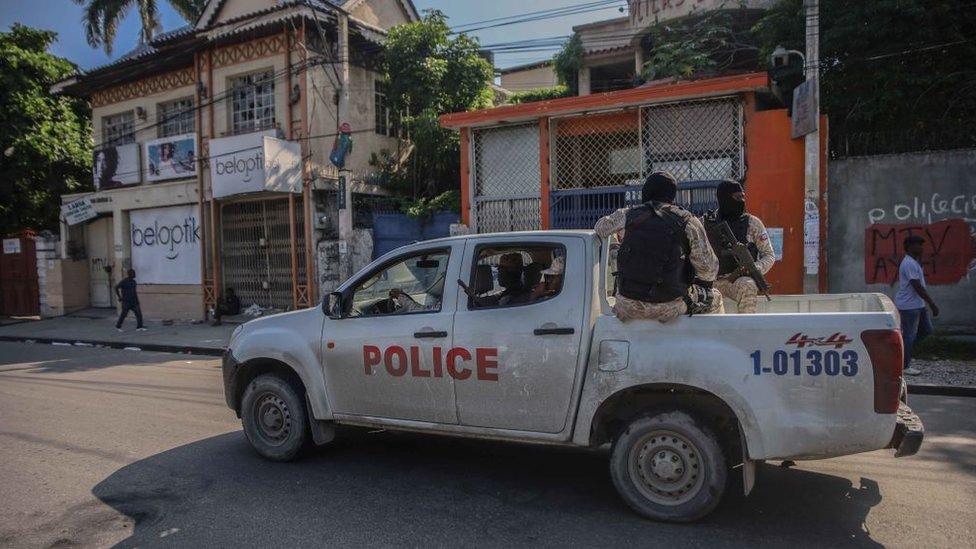Haiti violence: Scores killed as gangs fight for control
- Published
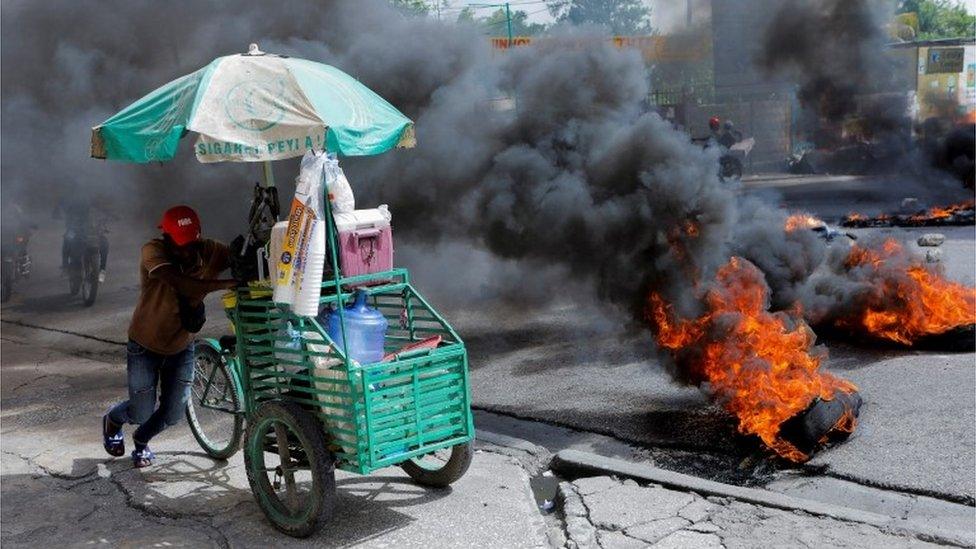
The gang battles have led to fuel shortages which in turn have triggered angry protests
At least 89 people are reported to have been killed in a week of gang warfare in the Haitian capital, Port-au-Prince.
The mayor of the impoverished Cité Soleil neighbourhood said two criminal alliances, known as G9 and G-Pèp, were fighting for control of the area.
Mayor Joël Janéus told local radio that residents were under a state of siege and lacked water, food and fuel.
Gang violence has shot up since the assassination of President Jovenel Moïse by mercenaries a year ago.
The latest deadly gang fight erupted on Thursday last week.
While no official death toll has been given, local human rights group RNDDH says it knows of 89 people killed.
Forty-seven of them have been identified as gang members, while the remaining 42 are thought to be residents caught in the crossfire.
The worst affected area is Brooklyn, an isolated part of Cité Soleil, aid agency Doctors Without Borders (MSF) said.
Thousands of Brooklyn residents who rely on trucks to deliver drinking water and essential foods have been completely cut off by the violence and are going hungry and thirsty.
MSF's head of mission in Haiti, Mumuza Muhindo, said charred and decomposing bodies littered the only road leading into Brooklyn.
"They could be people killed during the clashes or people trying to leave who were shot - it is a real battlefield. It is not possible to estimate how many people have been killed," Mr Muhindo said.
He added that staff at an MSF care centre in Cité Soleil had opened an operating room to provide emergency surgeries for the wounded.
The aid agency has called on the armed groups to spare civilians and allow aid into Cité Soleil.
Local media said the clashes began when men belonging to the G9 gang alliance stormed territory held by their rivals from G-Pèp in an effort to unseat its leader, a man known as Ti Gabriel.
While Port-au-Prince has long suffered from gang violence, groups like G9 and G-Pèp have stepped it up to new levels.
Both groups were formed as alliances of local gangs which have pooled their weapons, manpower and resources, thereby increasing their influence and reach.
G9's leader is a former police officer turned criminal boss, Jimmy Chérizier, also known as Barbecue.
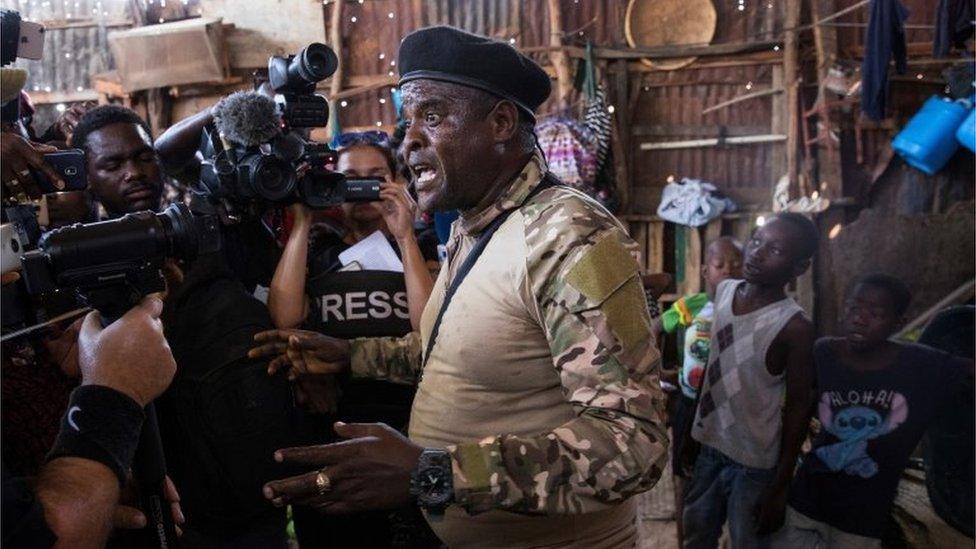
Jimmy Chérizier holds news conferences and gives the media tours of areas he controls
Barbecue's brazenness is such that last year, his gang members opened fire at a monument just as Prime Minister Ariel Henry was about to lay a wreath, sending the prime minister and his entourage fleeing.
His G9 alliance controls the area around the Varreux oil terminal in Cité Soleil and the latest shootouts mean that fuel deliveries have been halted for security reasons.
On Wednesday, hundreds of people burned tyres in the streets of the capital to demand the government do more to restore the supply of petrol.
- Published9 May 2022
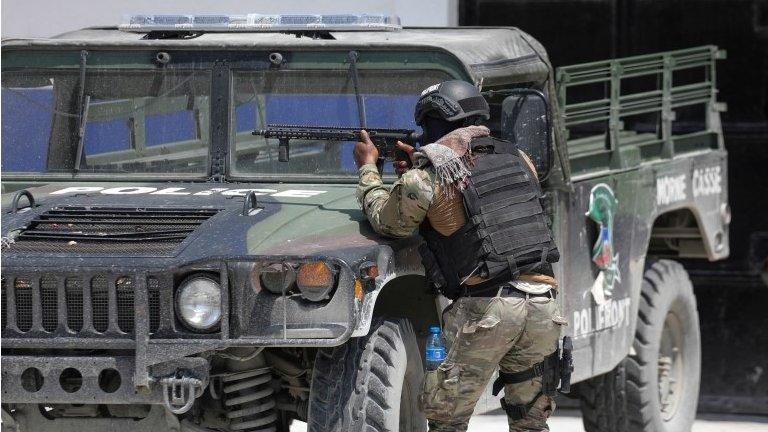
- Published4 May 2022
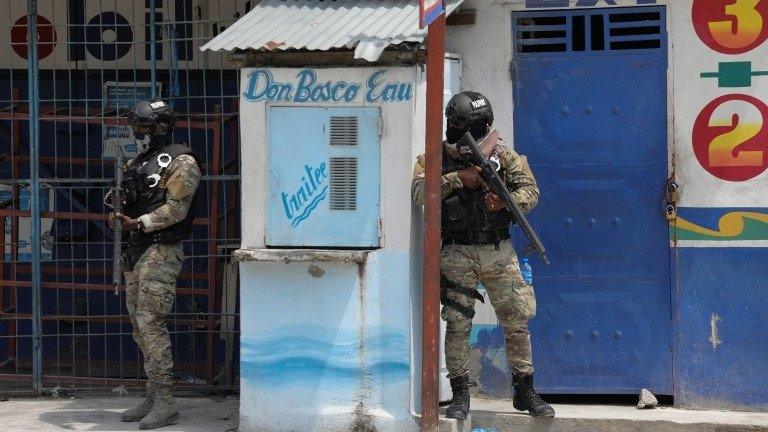
- Published7 January 2022
